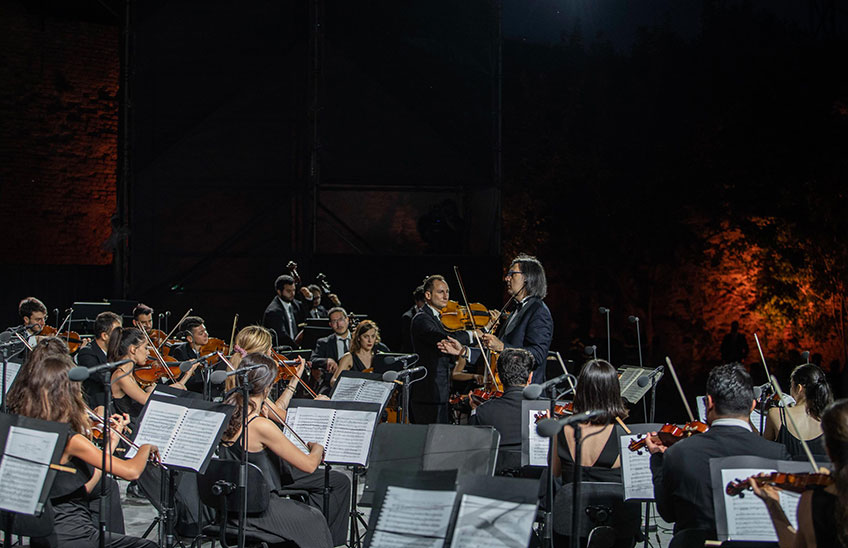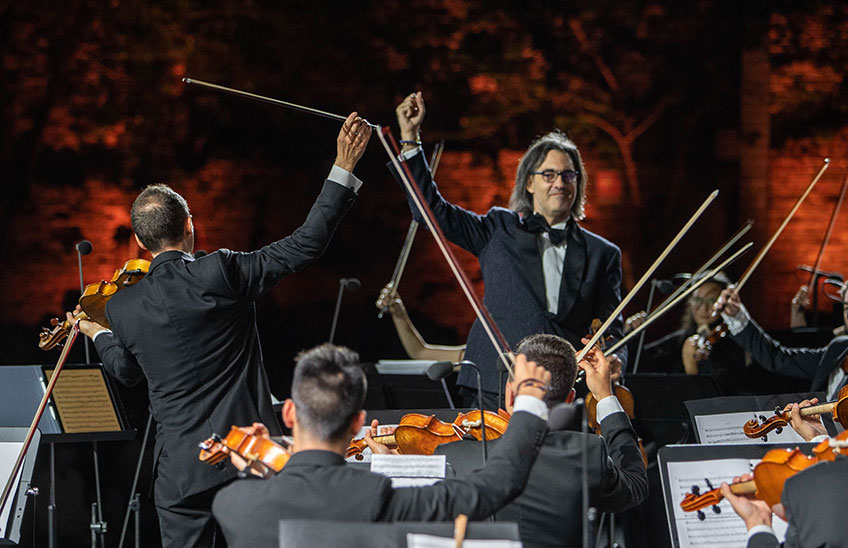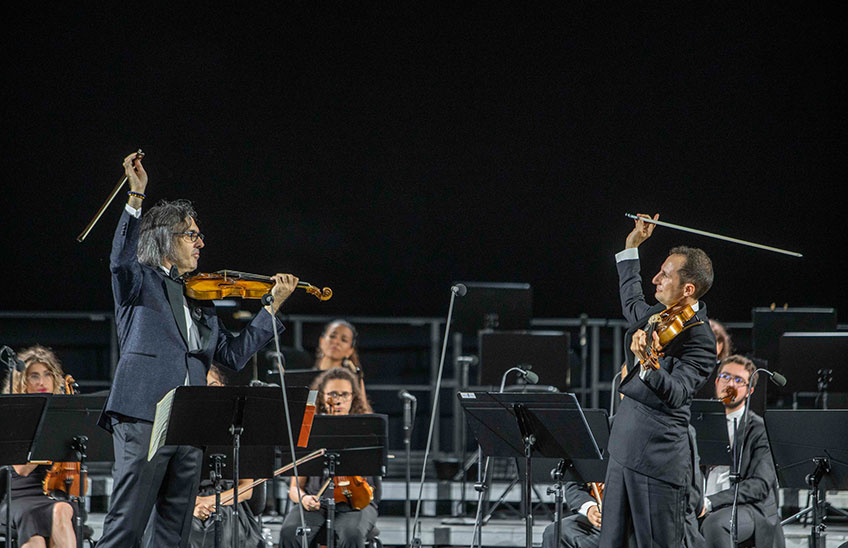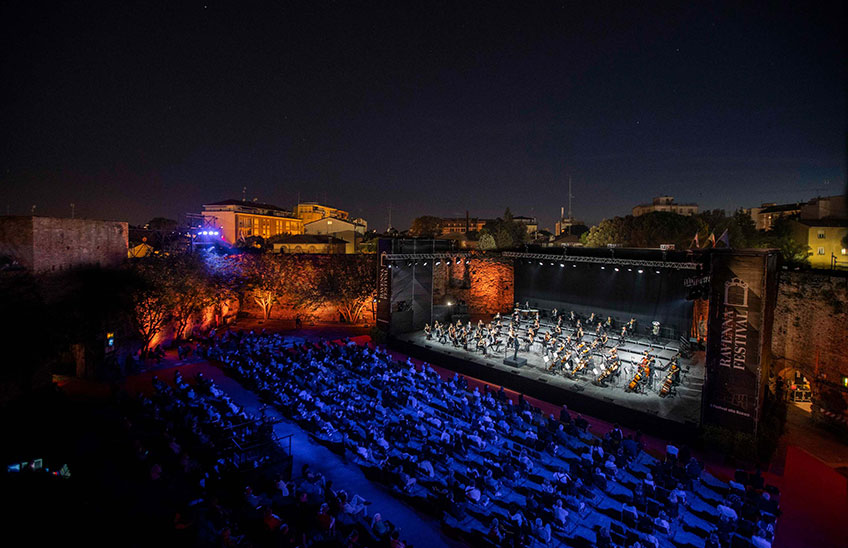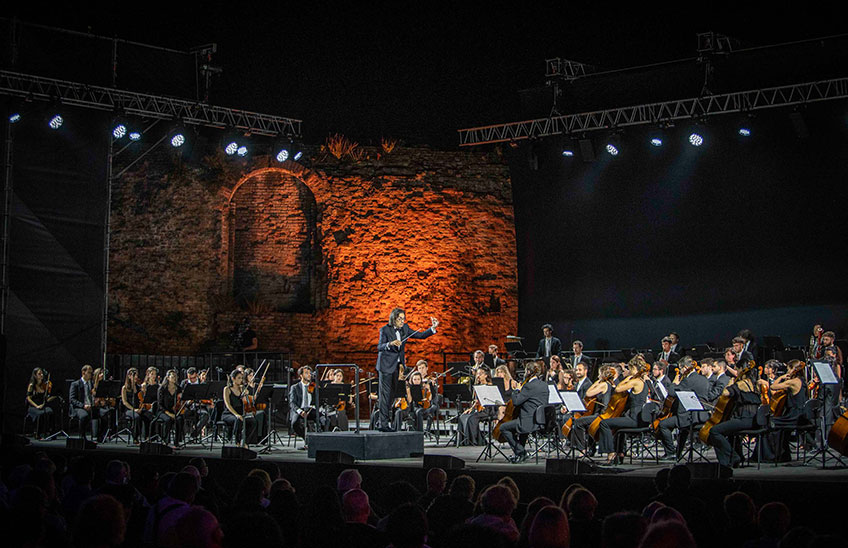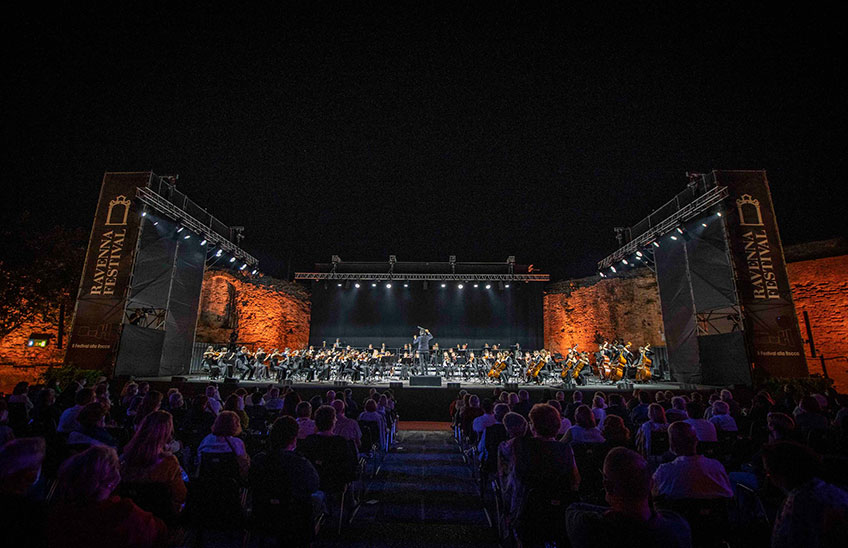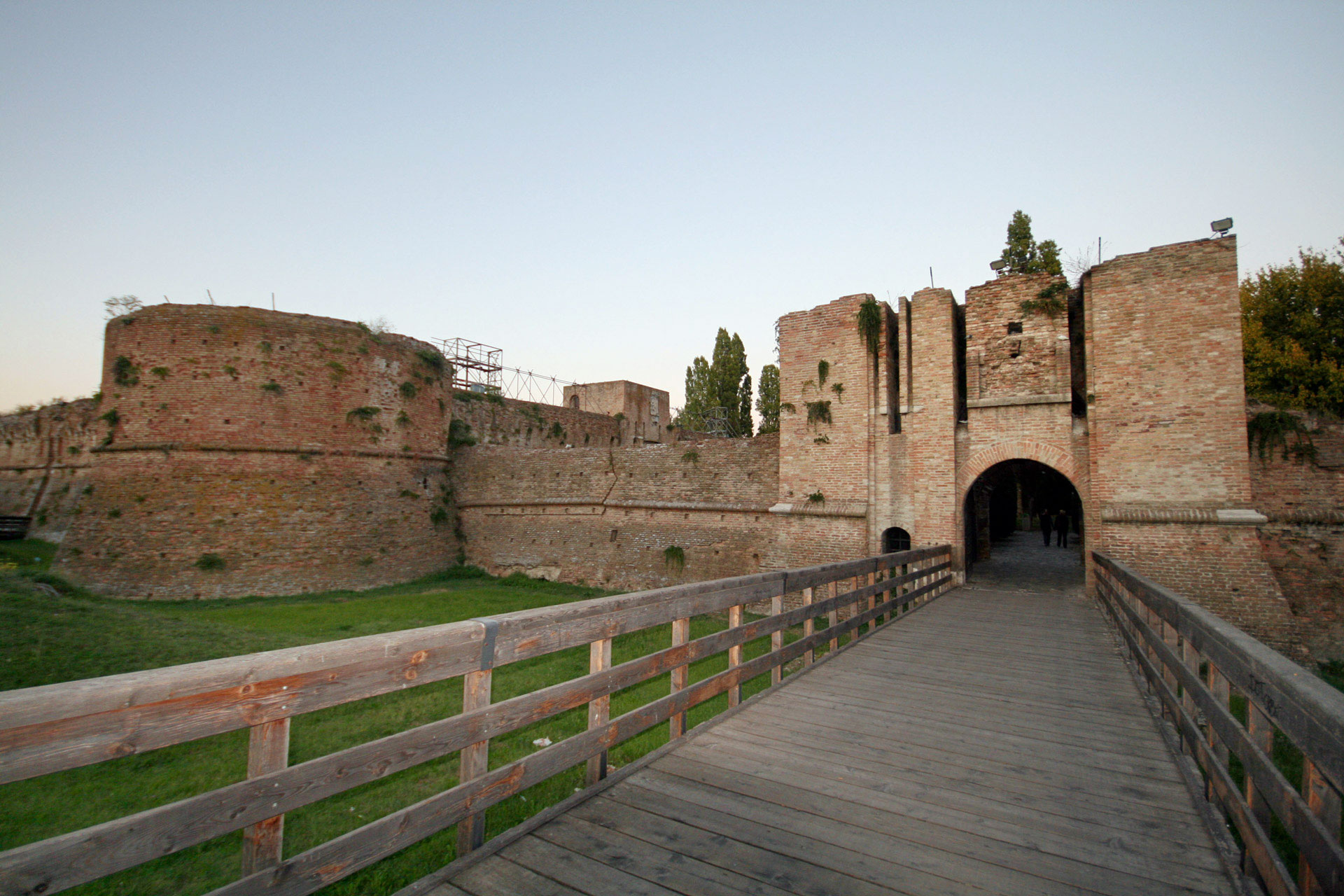© Marco Borrelli
Orchestra Giovanile Luigi Cherubini
Leōnidas Kavakos conductor and violin
Antoine Tamestit viola
Wolfgang Amadeus Mozart
Sinfonia concertante for violin, viola, and orchestra in E-flat major K. 364
Antonín Dvořák
Symphony no. 8 in G major, Op. 88
Masterpieces are usually born from personal and artistic tribulations. 1779 was a black year for Mozart: his mother died, the appointments he hoped to obtain in Mannheim and Paris came to nothing. He had to go back to the “prison” of Salzburg, where he “had to play for the chairs”. His transition to adulthood, however, came with the Sinfonia Concertante for two solo instruments, where hope for the future (the sparkling lines of the violin) dialogues with the dark, meditative tones of the viola. Dvořák, too, at almost 50, was trying to achieve his own identity, leaving the Germanic tradition behind to embrace the Bohemian folklore. “Don’t laugh at me. I am not only a musician, I am a poet”, he claimed in 1889 on publishing his Symphony no.8, composed through images, with an initial long, melancholy movement to open up his memory box.
